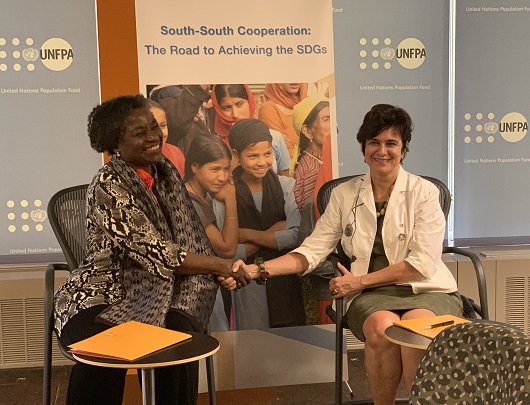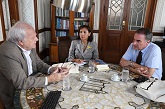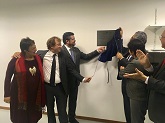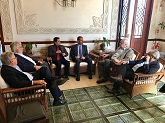
A Memorandum of Understanding was signed in the UNFPA headquarters, in New York. The signing took place during the UN High-Level Political Forum for Sustainable Development. Intensifying South-South cooperation by promoting health for children and the young, as well as maternal health, reproductive rights and fight against gender violence were the priorities identified for the beginning of the partnership.




